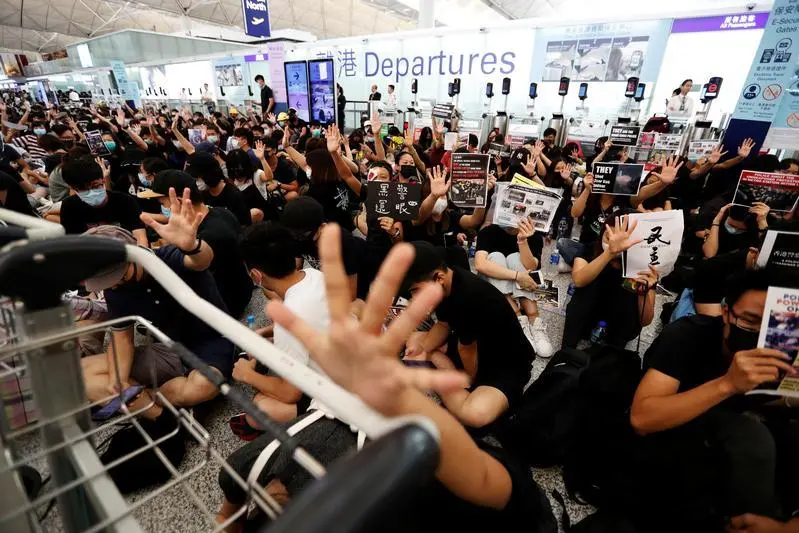PHOTO
HONG KONG - Unrest is the recurring cost of Hong Kong’s elite procrastination. Home prices have risen and tycoons have grown wealthier, while officials hoard fiscal reserves. Today’s protests focus on resistance to Beijing’s influence, but local officials’ stubborn indifference to inequality since the last round of unrest in 2014 has stoked the flames.
None of the protesters’ demands focus on money. An ill-conceived proposal to allow extradition to mainland China triggered their anger, and their wish-list has since expanded to include universal suffrage and an investigation into police conduct.
Economic woes have nevertheless underpinned the discontent, especially for young Hong Kongers who form the front lines of pro-democracy demonstrations. When Chief Executive Carrie Lam took office in 2017, the city’s wealth gap had reached its highest level in more than four decades. Despite the warning signs, the government has failed to improve prospects.
A typical worker earned around $38,000 in 2018, equivalent to 4% of a director’s remuneration at local conglomerate CK Hutchison. Homes on average cost over 19 times household income, and they are, for the most part, tiny. Powerful families have been allowed to increase their control of nearly every aspect of economic life. The owners of the Wellcome and Park’n’Shop supermarket chains, for example, have a combined 71% share of the market.
Like her predecessors, Lam promised to create jobs and affordable places to live. She delivered a modest increase in spending. Her controversial plan to tackle the housing crisis by building man-made islands, however, won’t be ready for more than a decade.
After weeks of protests, the government on Thursday unveiled plans to support a weakening economy, including subsidies for the underprivileged. Handouts won’t clear the streets, though. Disagreements over the special administrative region's relationship with Beijing run deep, and span social classes. Even so, addressing the decaying quality of life is the obvious next step when the demonstrators eventually go home.
Making welfare systems more generous helped following more violent riots that roiled the then-British colony in 1967. Some HK$2 trillion ($255 billion) now sits in the city’s coffers, enough firepower to transform public housing, healthcare and education. Without them, any new truce is unlikely to last.
CONTEXT NEWS
- Hong Kong's government on Aug. 15 unveiled an economic support package worth HK$19.1 billion ($2.4 billion) as escalating political protests and the prolonged Sino-U.S. trade war weigh on the Asian financial centre.
- More mass demonstrations are planned in Hong Kong over the weekend following 10 weeks of increasingly violent confrontations between police and protesters.
- The protesters have spelled out five demands. They include the complete withdrawal of now-suspended legislation that would have allowed criminal suspects to be sent for trial in mainland China; an independent inquiry into police behaviour; and the introduction of universal suffrage.
(Editing by Pete Sweeney and Sharon Lam) ((katrina.hamlin@thomsonreuters.com; Reuters Messaging: katrina.hamlin.thomsonreuters.com@reuters.net))





















